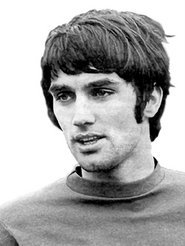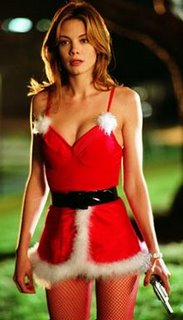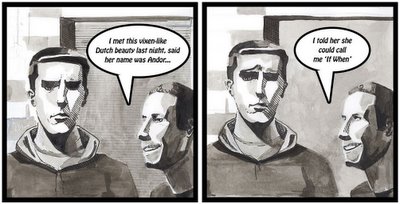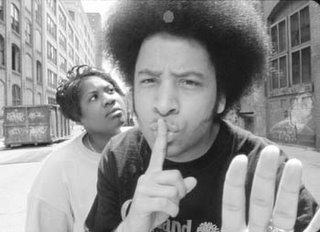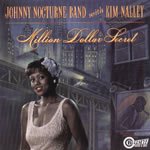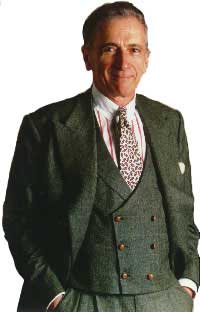
from
Esquire.comThis wonderful article by Gay Talese originally appeared in Esquire magazine, April 1966. Gay Talese was credited by Tom Wolfe as the creator of "The New Journalism."FRANK SINATRA, holding a glass of bourbon in one hand and a cigarette in the other, stood in a dark corner of the bar between two attractive but fading blondes who sat waiting for him to say something. But he said nothing; he had been silent during much of the evening, except now in this private club in Beverly Hills he seemed even more distant, staring out through the smoke and semidarkness into a large room beyond the bar where dozens of young couples sat huddled around small tables or twisted in the center of the floor to the clamorous clang of folk-rock music blaring from the stereo. The two blondes knew, as did Sinatra's four male friends who stood nearby, that it was a bad idea to force conversation upon him when he was in this mood of sullen silence, a mood that had hardly been uncommon during this first week of November, a month before his fiftieth birthday.
Sinatra had been working in a film that he now disliked, could not wait to finish; he was tired of all the publicity attached to his dating the twenty-year-old Mia Farrow, who was not in sight tonight; he was angry that a CBS television documentary of his life, to be shown in two weeks, was reportedly prying into his privacy, even speculating on his possible friendship with Mafia leaders; he was worried about his starring role in an hour-long NBC show entitled Sinatra- A Man And His Music, which would require that he sing eighteen songs with a voice that at this particular moment, just a few nights before the taping was to begin, was weak and sore and uncertain. Sinatra was ill. He was the victim of an ailment so common that most people would consider it trivial. But when it gets to Sinatra it can plunge him into a state of anguish, deep depression, panic, even rage. Frank Sinatra had a cold.
Sinatra with a cold is Picasso without paint, Ferrari without fuel -only worse. For the common cold robs Sinatra of that uninsurable jewel, his voice, cutting into the core of his confidence, and it affects not only his own psyche but also seems to cause a kind of psychosomatic nasal drip within dozens of people who work for him, drink with him, love him, depend on him for their own welfare and stability. A Sinatra with a cold can, in a small way, send vibrations through the entertainment industry and beyond as surely as a President of the United States, suddenly sick, can shake the national economy.
For Frank Sinatra was now involved with many things involving many people-his own film company, his record company, his private airline, his missile-parts firm, his real-estate holdings across the nation, his personal staff of seventy-five-which are only a portion of the power he is and has come to represent. He seemed now to be also the embodiment of the fully emancipated male, perhaps the only one in America, the man who can do anything he wants, anything, can do it because he has the money, the energy, and no apparent guilt. In an age when the very young seem to be taking over, protesting and picketing and demanding change, Frank Sinatra survives as a national phenomenon, one of the few prewar products to withstand the test of time. He is the champ who made the big comeback, the man who had everything, lost it, then got it back, letting nothing stand in his way, doing what few men can do: he uprooted his life, left his family, broke with everything that was familiar, learning in the process that one way to hold a woman is not to hold her. Now he has the affection of Nancy and Ava and Mia, the fine female produce of three generations, and still has the adoration his children, the freedom of a bachelor, he does not feel old, he makes old men feel young, makes them think that if Frank Sinatra can do it, it can be done; not that they could do it, but it is still nice for other men to know, at fifty, that it can be done.
But now, standing at this bar in Beverly Hills, Sinatra had a cold, and he continued to drink quietly and he seemed miles away in his private world, not even reacting when suddenly the stereo in the other room switched to a Sinatra song, In the Wee Small Hours of the Morning.
It is a lovely ballad that he first recorded ten years ago, and it now inspired many young couples who had been sitting, tired of twisting, to get up and move slowly around the dance floor, holding one another very close. Sinatra's intonation, precisely clipped, yet full and flowing, gave a deeper meaning to the simple Iyrics-"In the wee small hours of the morning/while the whole wide world is fast asleep/you lie awake, and think about the girl .."-it was, like so many of his classics, a song that evoked loneliness and sensuality, and when blended with the dim light and the alcohol and nicotine and late-night needs, it became a kind of airy aphrodisiac. Undoubtedly the words from this song, and others like it, had put millions in the mood, it was music to make love by, and doubtless much love had been made by it all over America at night in cars, while the batteries burned down, in cottages by the lake, on beaches during balmy summer evenings, in secluded parks and exclusive penthouses and furnished rooms, in cabin cruisers and cabs and cabanas-in all places where Sinatra's songs could be heard were these words that warmed women, wooed and won them, snipped the final thread of inhibition and gratified the male egos of ungrateful lovers; two generations of men had been the beneficiaries of such ballads, for which they were eternally in his debt, for which they may eternally hate him. Nevertheless here he was, the man himself, in the early hours of the morning in Beverly Hills, out of range.
The two blondes, who seemed to be in their middle thirties, were preened and polished, their matured bodies softly molded within tight dark suits. They sat, legs crossed, perched on the high bar stools. They listened to the music. Then one of them pulled out a Kent and Sinatra quickly placed his gold lighter under it and she held his hand, looked at his fingers: they were nubby and raw, and the pinkies protruded, being so stiff from arthritis that he could barely bend them. He was, as usual, immaculately dressed. He wore an oxford-grey suit with a vest, a suit conservatively cut on the outside but trimmed with flamboyant silk within; his shoes, British, seemed to be shined even on the bottom of the soles. He also wore, as everybody seemed to know, a remarkably convincing black hairpiece, one of sixty that he owns, most of them under the care of an inconspicuous little grey-haired lady who, holding his hair in a tiny satchel, follows him around whenever he performs. She earns $400 a week. The most distinguishing thing about Sinatra's face are his eyes, clear blue and alert, eyes that within seconds can go cold with anger, or glow with affection, or, as now, reflect a vague detachment that keeps his friends silent and distant.
Leo Durocher, one of Sinatra's closest friends, was now shooting pool in the small room behind the bar. Standing near the door was Jim Mahoney, Sinatra's press agent, a somewhat chunky young man with a square jaw and narrow eyes who would resemble a tough Irish plainclothesman if it were not for the expensive continental suits he wears and his exquisite shoes often adorned with polished buckles. Also nearby was a big, broad-shouldered two-hundred-pound actor named Brad Dexter who seemed always to be thrusting out his chest so that his gut would not show.
Brad Dexter has appeared in several films and television shows, displaying fine talents as a character actor, but in Beverly Hills he is equally known for the role he played in Hawaii two years ago when he swam a few hundred yards and risked his life to save Sinatra from drowning in a riptide. Since then Dexter has been one of Sinatra's constant companions and has been made a producer in Sinatra's film company. He occupies a plush office near Sinatra's executive suite. He is endlessly searching for literary properties that might be converted into new starring roles for Sinatra. Whenever he is among strangers with Sinatra he worries because he knows that Sinatra brings out the best and worst in people-some men will become aggressive, some women will become seductive, others will stand around skeptically appraising him, the scene will be somehow intoxicated by his mere presence, and maybe Sinatra himself, if feeling as badly as he was tonight, might become intolerant or tense, and then: headlines. So Brad Dexter tries to anticipate danger and warn Sinatra in advance. He confesses to feeling very protective of Sinatra, admitting in a recent moment of self-revelation: "I'd kill for him."
While this statement may seem outlandishly dramatic, particularly when taken out of context, it nonetheless expresses a fierce fidelity that is quite common within Sinatra's special circle. It is a characteristic that Sinatra, without admission, seems to prefer: ALL The Way; All Or Nothing At All. This is the Sicilian in Sinatra; he permits his friends, if they wish to remain that, none of the easy Anglo-Saxon outs. But if they remain loyal, then there is nothing Sinatra will not do in turn-fabulous gifts, personal kindnesses, encouragement when they're down, adulation when they're up. They are wise to remember, however, one thing. He is Sinatra. The boss. Il Padrone.
I had seen something of this Sicilian side of Sinatra last summer at Jilly's saloon in New York, which was the only other time I'd gotten a close view of him prior to this night in this California club. Jilly's, which is on West Fifty-second Street in Manhattan, is where Sinatra drinks whenever he is in New York, and there is a special chair reserved for him in the back room against the wall that nobody else may use. When he is occupying it, seated behind a long table flanked by his closest New York friend who include the saloonkeeper, Jilly Rizzo, and Jilly's azure-haired wife, Honey, who is known as the "Blue Jew"-a rather strange ritualistic scene develops. That night dozens of people, some of them casual friends of Sinatra's, some mere acquaintances, some neither, appeared out side of Jilly's saloon. They approached it like a shrine. They had come to pay respect. They were from New York, Brooklyn, Atlantic City, Hoboken. They were old actors, young actors, former prize fighters, tired trumpet players, politicians, a boy with a cane. There was a fat lady who said she remembered Sinatra when he used to throw the Jersey Observer onto her front porch in 1933. There were middle-aged couples who said they had heard Sinatra sing at the Rustic Cabin in 1938 and "We knew then that he really had it!" Or they had heard him when he was with Harry James's band in 1939, or with Tommy Dorsey in 1941 ("Yeah, that's the song, I'll Never Smile Again-he sang it one night in this dump near Newark and we danced ..."); or they remembered that time at the Paramount with the swooners, and him with those bow ties, The Voice; and one woman remembered that awful boy she knew then-Alexander Dorogokupetz, an eighteen-year-old heckler who had thrown a tomato at Sinatra and the bobby-soxers in the balcony had tried to flail him to death. Whatever became of Alexander Dorogokupetz? The lady did not know.
And they remembered when Sinatra was a failure and sang trash like Mairzy Doats, and they remembered his comeback and on this night they were all standing outside Jilly's saloon, dozens of them, but they could not get in. So some of them left. But most of them stayed, hoping that soon they might be able to push or wedge their way into Jilly's between the elbows and backsides of the men drinking three-deep at the bar, and they might be able to peek through and see him sitting back there. This is all they really wanted; they wanted to see him. And for a few moments they gazed in silence through the smoke and they stared. Then they turned, fought their way out of the bar, went home.
Some of Sinatra's close friends, all of whom are known to the men guarding Jilly's door, do manage to get an escort into the back room. But once they are there they, too, must fend for themselves. On the particular evening, Frank Gifford, the former football player, got only seven yards in three tries. Others who had somehow been close enough to shake Sinatra's hand did not shake it; instead they just touched him on the shoulder or sleeve, or they merely stood close enough for him to see them and, after he'd given them a wink of recognition or a wave or a nod or called out their names (he has a fantastic memory for first names), they would then turn and leave. They had checked in. They had paid their respects. And as I watched this ritualistic scene, I got the impression that Frank Sinatra was dwelling simultaneously in two worlds that were not contemporary.
On the one hand he is the swinger-as he is when talking and joking with Sammy Davis, Jr., Richard Conte, Liza Minelli, Bernice Massi, or any of the other show-business people who get to sit at the table; on the other, as when he is nodding or waving to his paisanos who are close to him (Al Silvani, a boxing manager who works with Sinatra's film company; Dominic Di Bona, his wardrobe man; Ed Pucci, a 300-pound former football lineman who is his aide-de-camp), Frank Sinatra is Il Padrone. Or better still, he is what in traditional Sicily have long been called uomini rispettati - men of respect: men who are both majestic and humble, men who are loved by all and are very generous by nature, men whose hands are kissed as they walk from village to village, men who would personally go out of their way to redress a wrong.
Frank Sinatra does things personally. At Christmas time, he will personally pick dozens of presents for his close friends and family, remembering the type of jewelry they like, their favorite colors, the sizes of their shirt and dresses. When a musician friend's house was destroyed and his wife was killed in a Los Angeles mud slide a little more than a year ago, Sinatra personally came to his aid, finding the musician a new home, paying whatever hospital bills were left unpaid by the insurance, then personally supervising the furnishing of the new home down to the replacing of the silver ware, the linen, the purchase of new clothing.
The same Sinatra who did this can, within the same hour, explode in a towering rage of intolerance should a small thing be incorrectly done for him by one of his paisanos. For example, when one of his men brought him a frankfurter with catsup on it, which Sinatra apparently abhors, he angrily threw the bottle at the man, splattering catsup all over him. Most of the men who work around Sinatra are big. But this never seems to intimidate Sinatra nor curb his impetuous behavior with them when he is mad. They will never take a swing back at him. He is II Padrone.
At other times, aiming to please, his men will overreact to his desires: when he casually observed that his big orange desert jeep in Palm Springs seemed in need of a new painting, the word was swiftly passed down through channels, becoming ever more urgent as it went, until finally it was a command that the jeep be painted now, immediately, yesterday. To accomplish this would require the hiring of a special crew of painters to work all night, at overtime rates; which, in turn, meant that the order had to be bucked back up the line for further approval. When it finally got back to Sinatra's desk, he did not know what it was all about; after he had figured it out he confessed, with a tired look on his face, that he did not care when the hell they painted his jeep.
Yet it would have been unwise for anyone to anticipate his reaction, for he is a wholly unpredictable man of many moods and great dimension, a man who responds instantaneously to instinct-suddenly , dramatically, wildly he responds, and nobody can predict what will follow. A young lady named Jane Hoag, a reporter at Life's Los Angeles bureau who had attended the same school as Sinatra's daughter, Nancy, had once been invited to a party at Mrs. Sinatra's California home at which Frank Sinatra, who maintains very cordial relations with his former wife, acted as host. Early in the party Miss Hoag, while leaning against a table, accidentally with her elbow knocked over one of a pair of alabaster birds to the floor, smashing it to pieces. Suddenly, Miss Hoag recalled, Sinatra's daughter cried, "Oh, that was one of mother's favorite ..."-but before she could complete the sentence, Sinatra glared at her, cutting her off, and while forty other guests in the room all stared in silence, Sinatra walked over, quickly with his finger flicked the other alabaster bird off the table, smashing it to pieces, and then put an arm gently around Jane Hoag and said, in a way that put her completely at ease, "That's okay, kid."
More
here




